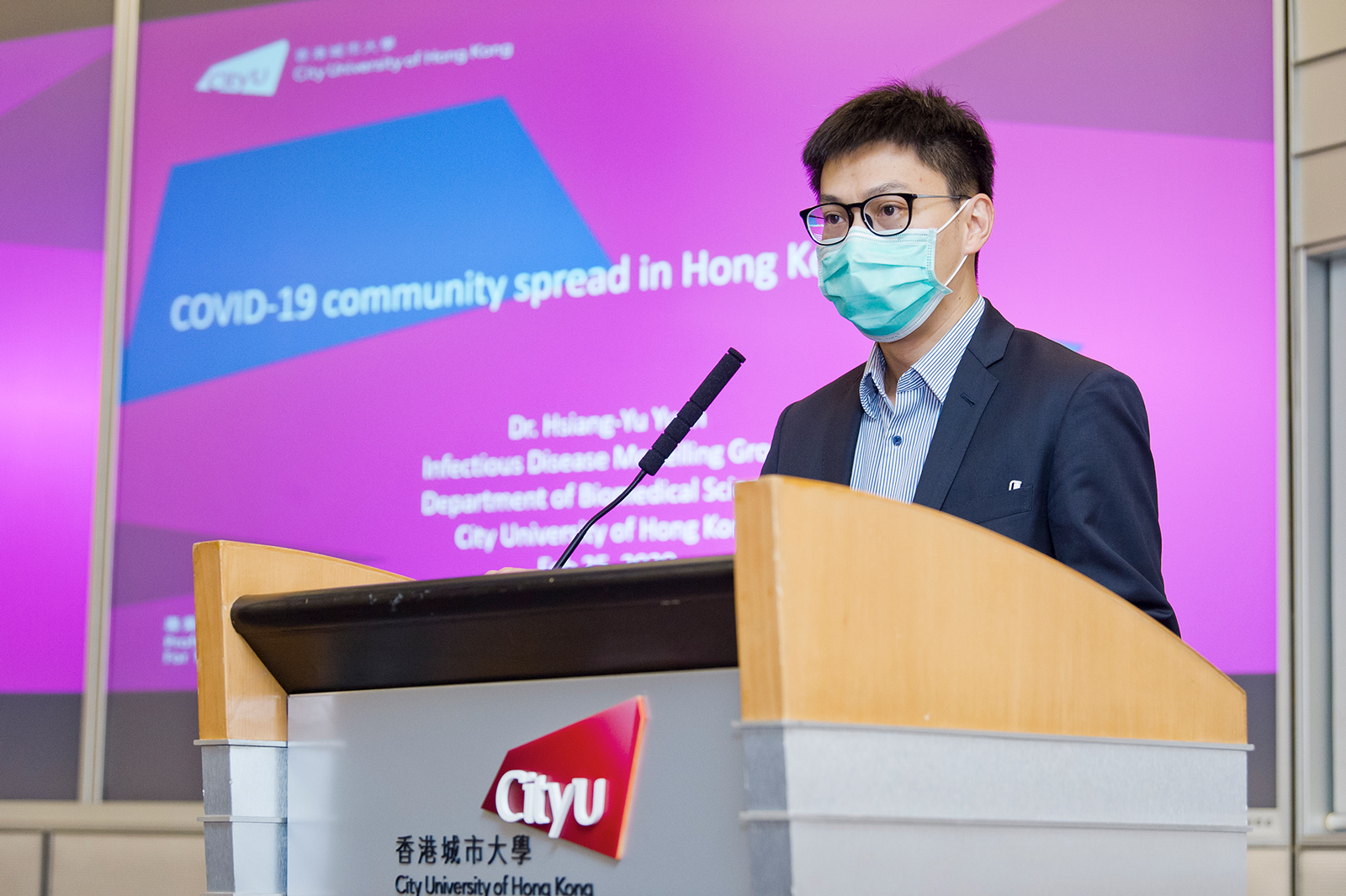News
A possible increase of around 60 infected cases of the novel coronavirus (COVID-19) from mid-February to mid-March is projected by Dr Sean Yuan Hsiang-yu, Assistant Professor in the Department of Biomedical Sciences at City University of Hong Kong (CityU). Whether the number of local infections will grow significantly depends on how effective the quarantine measures are at reducing the recontact rate between the high-risk individuals and other people.
Unleashing the intrinsic power of the immune system to fight cancer is the focus of an award-winning research led by a biomedical scientist and her research team at City University of Hong Kong.
The Society for the Prevention of Cruelty to Animals (Hong Kong) (“SPCA (HK)” or “the Society”) and The Hong Kong Veterinary Association (“HKVA”), the renowned animal welfare charity and Hong Kong’s largest veterinary professional body, together with veterinary experts from City University offer advice to concerned pet owners in the light of the Covid-19 outbreak.
Dr Sean Yuan Hsiang-yu, Assistant Professor in the Department of Biomedical Sciences at City University of Hong Kong (CityU), estimates that the worst-case scenario for a novel coronavirus outbreak in the local community could be more than 220 individuals infected over the next two weeks after the Chinese New Year holidays. He cited a joint research project between mainland China, Hong Kong and Taiwan universities and research institutes at a media briefing on 31 January.
Cultural differences in risk perception play an important role when it comes to emergence of new infectious diseases associated with the animal-human interface. An example are the meat consumption behaviours in different parts of the world, and in the context of the emergence of the new coronavirus in Wuhan it is the consumption of meat derived from wild animals.
The Wuhan pneumonia issue was the focus of a media interview on 9 January 2020 with Professor Sheng Chen, Associate Dean (Research) at CityU's Jockey Club College of Veterinary Medicine and Life Sciences.
As an institution that draws veterinarians and veterinary medicine experts from around the world, the Jockey Club College of Veterinary Medicine and Life Sciences (JCC) is pleased to welcome two renowned feline veterinarians to its faculty this year: Chair Professor Vanessa Barrs, who is taking up the post of Associate Dean and Director of Veterinary Affairs, and Professor Julia Beatty, joining as Chair Professor of Veterinary Medicine and Infectious Disease. Both professors have been teaching at the University of Sydney, Australia, for the last 15 years.
We are very pleased to announce the concurrent appointment of Professor Sheng Chen as Associate Dean (Research) of the Jockey Club College of Veterinary Medicine and Life Sciences (JCC). Prof.
Groundbreaking technology that can accurately perform early screening for cancer cells and effectively monitor disease status has been successfully developed by a biomedical research team at CityU.
A world-first self-healable anti-smudge coating successfully developed by a research team at CityU could lead to production costs that are 80% lower than for existing materials.










